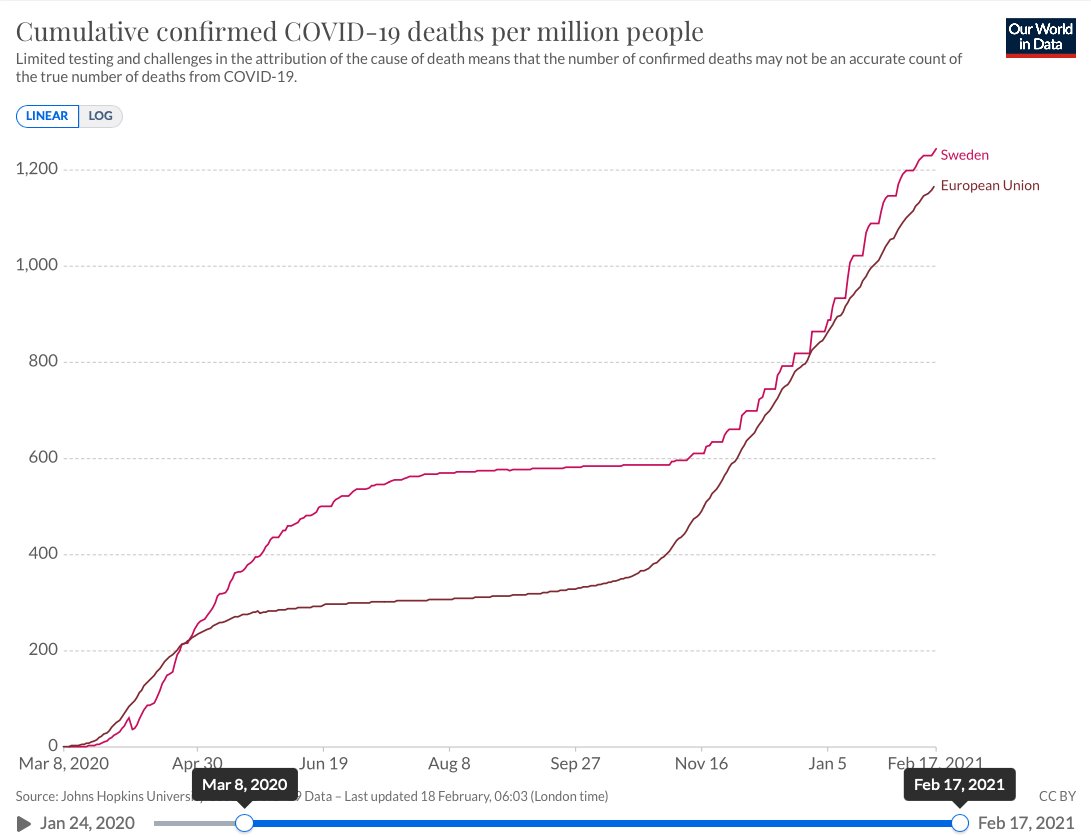
This article remains the best discussion of the ethical underpinnings of Swedish corona strategy, if anyone is still interested. The author is a leading political scientist, formerly of Uppsala University, and a long-standing member of policy circles. /1
dn.se/debatt/sverige…
dn.se/debatt/sverige…
The central normative ideas behind the Swedish legal framework that governed the response were equality, dignity, and autonomy – and the notion that human beings must never be treated as mere means, but always as ends in themselves. /2 



This normative framework inspired the view that the best way to deal with challenges is to equip citizens with the information and other resources that would allow them to do the right thing of their own volition, rather than relying on mandates and bans to force them to. /3
This is how Sweden ended up with a strategy that depended (to a greater extent than elsewhere) on recommendations rather than restrictions, on social norms rather than legal penalties, and so on. /4
The strategy was not based on a cold utilitarian calculus, of the kind that allows or requires that individual autonomy, goods and rights be sacrificed for the greater good. /5
Nor was it based on the lexical priority of negative rights ("freedom from") over positive rights ("freedom to"). /6
NB: None of this is to say that the ethical framework was the right one, obv., nor that it was implemented correctly. I'm only talking about what normative assumptions *in fact* drove the legal framework that governed the response. /7
Finally: Note that the law was articulated on the basis of very explicitly *normative* ideals. Nobody was trying to hide the fact that the process was driven ultimately by values.
• • •
Missing some Tweet in this thread? You can try to
force a refresh











